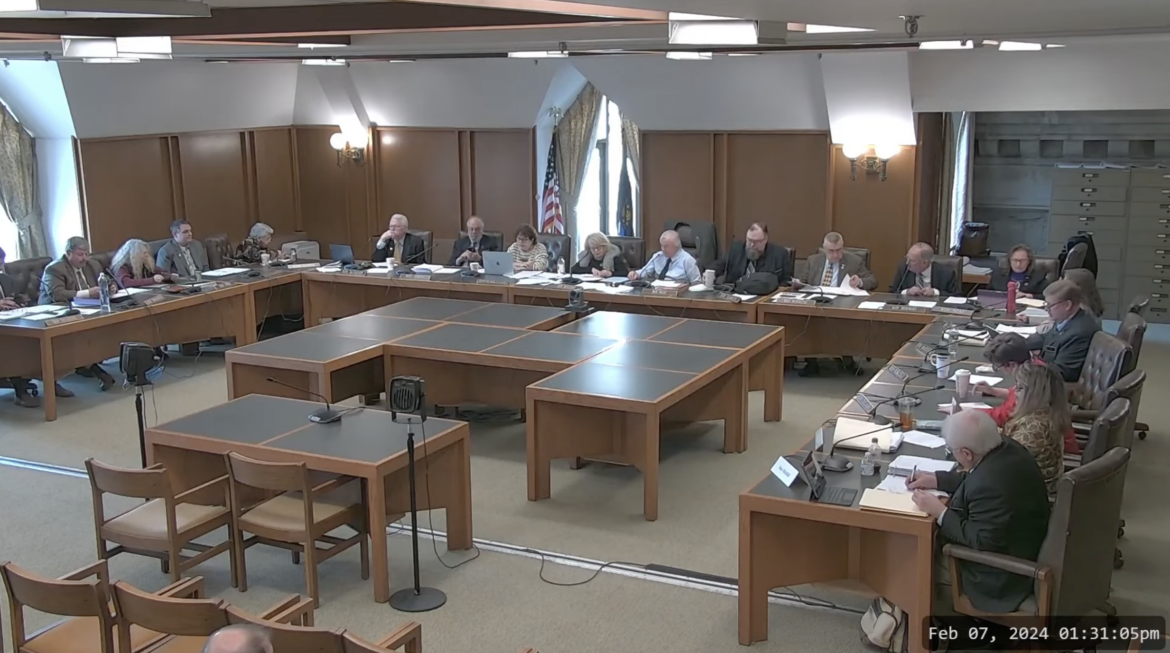CONCORD – During its executive session on Wednesday, the House Commerce and Consumer Affairs Committee voted on two bills that would substantially impact environmental concerns in consumer products.
The first bill, HB 1207, would prohibit “certain food service facilities from having self-serve/self-service disposable plastic foodware accessory dispensers, and from providing or offering disposable plastic foodware accessories to any customer, except upon request of that customer.”
This bill, when discussed at the public hearing on Jan. 9 was met with a mix of support and opposition. Advocates favored how it would cut down on single-use plastic consumption, while others questioned the costs and burdens it could impose on food service facilities. Rep. Karen Calabro, D-Hollis, motioned to send the bill to interim study, claiming that as of now, such a bill could potentially put additional stress on the New Hampshire economy and consumers, in addition to several issues with the bill as written.
“This is just not the time to introduce this particular type of legislation,” Calabro said. “If the economy should get better, it’s certainly something to consider.”
Another bill targeting environmental concerns was HB 1649, which would prohibit the use of PFAS, or forever chemicals, in “certain consumer products sold in New Hampshire.” The original bill listed specific products with intentionally-added PFAS that would be prohibited, beginning on July 1, 2028, if passed: carpets or rugs, cosmetics, fabric treatments, feminine hygiene products, fluorine-treated containers, food packaging and containers, juvenile products (made for children under 12 years of age), dental floss, personal protective equipment, and upholstered furniture.
Rep. Carry Spier, D-Nashua, motioned ought-to-pass on the amendment to the bill, which she claimed was identical to the introduced bill, apart from concessions to oppositional concerns such as labeling requirements for products that contain PFAS.
“This bill and the amendment are a bipartisan effort to address a very severe problem that is happening in New Hampshire with respect to the PFAS contamination that we face in our well water, in our land waste, in products that we use most commonly with a very high PFAS load,” Spier said.
Spier stated that other states have taken much stricter approaches to banning PFAS, but this bill would be ideal for New Hampshire right now, which has faced severe instances of PFAS pollution in various towns including Merrimack, Bedford, and outside of Portsmouth.
“This is the best bang we can get for our buck right now, if you will, in addressing a problem that affects all of us,” Spier said.
Rep. Karen Ebel, D-New London, the prime sponsor of HB 1649, said after the vote: “PFAS should not be in the air we breathe, the food we eat, or the water we drink, but they are. These ‘forever chemicals’ are so pervasive in the products we use in our daily lives that virtually all of us have them in us. Facing continuing public health challenges and the extreme financial burdens of PFAS contamination, our state must take decisive and strategic action to reduce the influx of PFAS. HB 1649 is a crucial, bipartisan step, enabling New Hampshire to join other states by prohibiting the sale of PFAS-added products we use in our everyday lives, like food packaging, children’s products, cosmetics, carpets, and furniture.”
Rep. Keith Ammon, R-New Boston, spoke up about his concerns over this bill. He said he would vote yes on the motion ought-to-pass on the amendment, but no on the final bill.
“I’m worried that we’re banning products that are useful in the marketplace without hard concrete evidence to support it,” Ammon said. Rep. Dick Thackston, R-Troy, stated his position was the same as Ammon’s.
The committee voted unanimously yes on the ought-to-pass motion for the amendment introduced by Spier, and 16 to 3 on the ought-to-pass vote on the bill as amended. Rep. Ammon, Rep. Thackston, and Rep. Aidan Ankarberg, R-Strafford, voted in opposition. The bill will remain on the regular calendar for the House vote. It is due to leave the committee on Feb. 15.
Ani Freedman is a contract reporter with InDepthNH.org. She is a recent graduate from Columbia Journalism School with a passion for environmental, health, and accountability reporting. In her free time, she’s an avid runner and run coach. She can be reached at anifreedmanpress@gmail.com.






